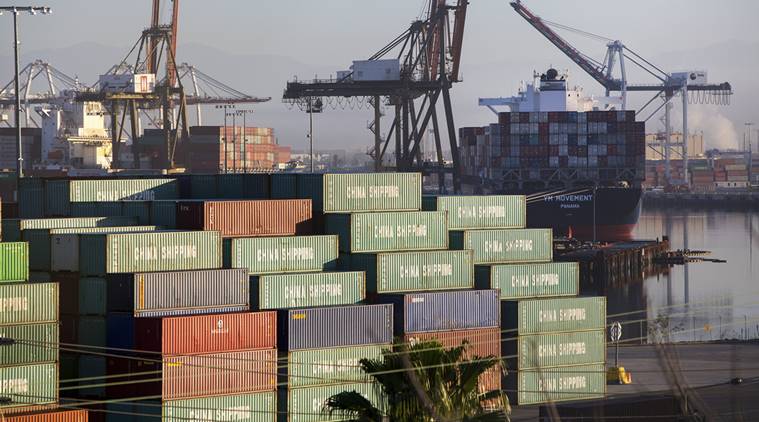Under a 2016 law, it is unlawful to bring merchandise into the United States that are made totally or to some extent by constrained work - which incorporates jail work, fortified work and kid work.

The United States has obstructed the import of merchandise suspected to have been made with constrained work from five nations, including attire from China and jewels from Zimbabwe, authorities said on Tuesday following an uncommon crackdown on slave work abroad.
The US Customs and Border Protection (CBP) said it held onto five distinct items this week dependent on data showing the products were made utilizing slave work abroad.
Different things included elastic gloves made in Malaysia, gold mined in the Democratic Republic of the Congo and bone dark – scorched creature bones – made in Brazil.
Under a 2016 law, it is unlawful to bring merchandise into the United States that are made totally or to a limited extent by constrained work – which incorporates jail work, fortified work and youngster work.
"A noteworthy piece of CBP's crucial encouraging real exchange and travel," said Acting CBP Commissioner Mark Morgan.
"CBP's giving of these five retain discharge requests demonstrates that on the off chance that we presume an item is made utilizing constrained work, we'll take that item off US racks," he said in an announcement.
An organization hit with a retain discharge request can choose to reroute the shipment and attempt to sell their items somewhere else or influence CBP to change its choice by giving reports to show due tirelessness and contend the products are without bondage.
More than $400 billion worth of merchandise liable to be made by constrained work enter the US advertise every year, as indicated by assessments by the Human Trafficking Institute, a non-benefit.
However revealing by the Thomson Reuters Foundation in April found that just $6.3 million worth of merchandise had been hindered since the law forbidding slave-made imports was passed in 2016.
Preceding the most recent crackdown, the CBP had given seven detainment orders since 2016, including substance mixes, stripped garlic and toys from China and cotton from Turkmenistan.
"It's energizing to see CBP's improvement towards powerful implementation of this law," said Annick Febrey, head of government and corporate relations at the Human Trafficking Institute, who in April portrayed the organization's effect up to that point as "insignificant".
"This is an unmistakable sign to organizations that they need due steadiness systems set up that anticipate constrained work in their inventory network in the event that they need to sell in the United States."
Neha Misra, senior master in relocation and human dealing for backing bunch Solidarity Center, invited the "noteworthy advance" and said monetary weight could help the drive for full work rights for laborers in worldwide stock chains.
The US Department of Labor said a year ago it was boosting its battle against slave-made merchandise "to defend American occupations" for its 325 million natives and that it was assuming a key job in shielding helpless specialists from maltreatment around the world.
Around 25 million individuals comprehensively are casualties of constrained work, as per the UN International Labor Organization.


0 Comments